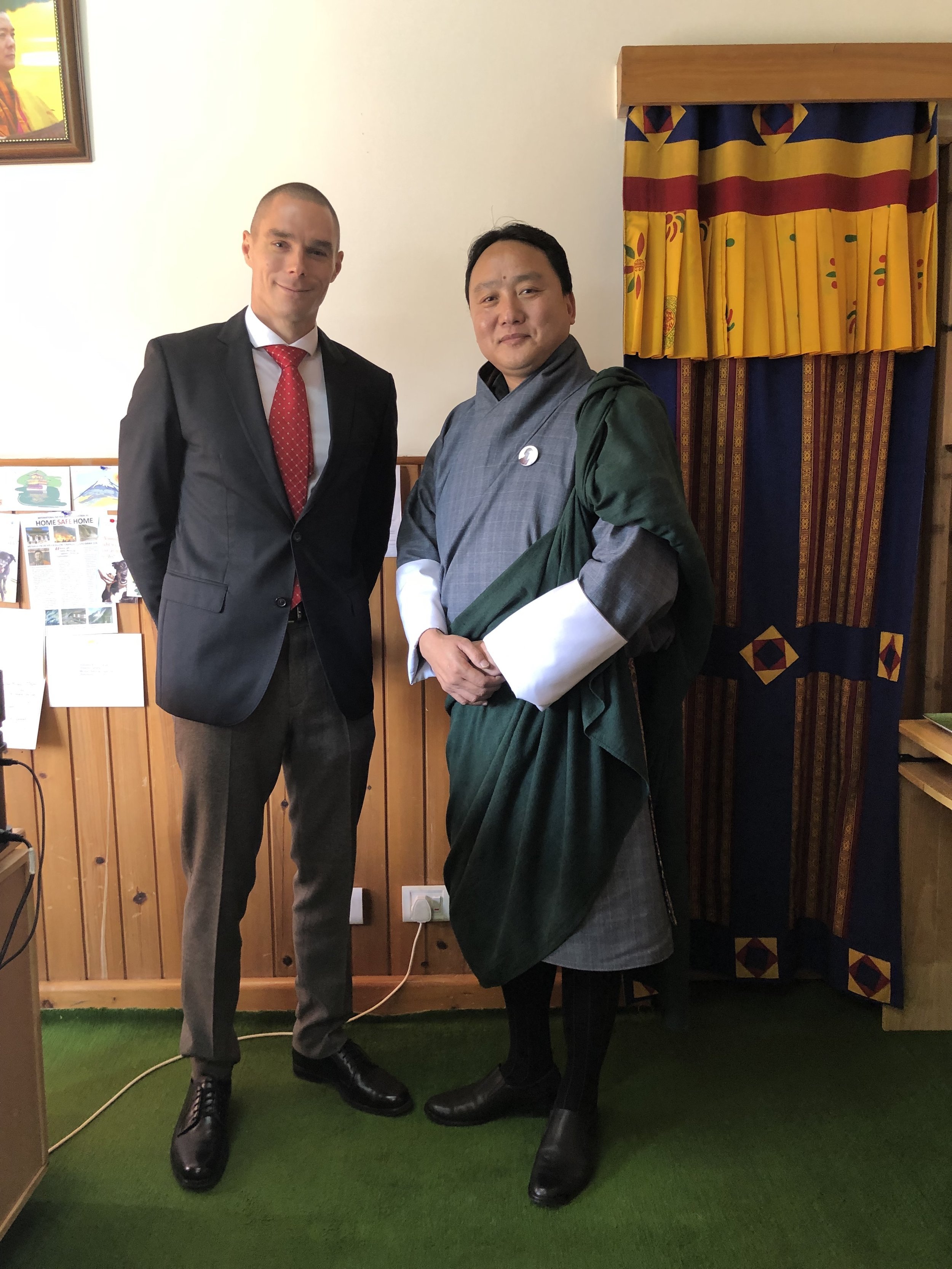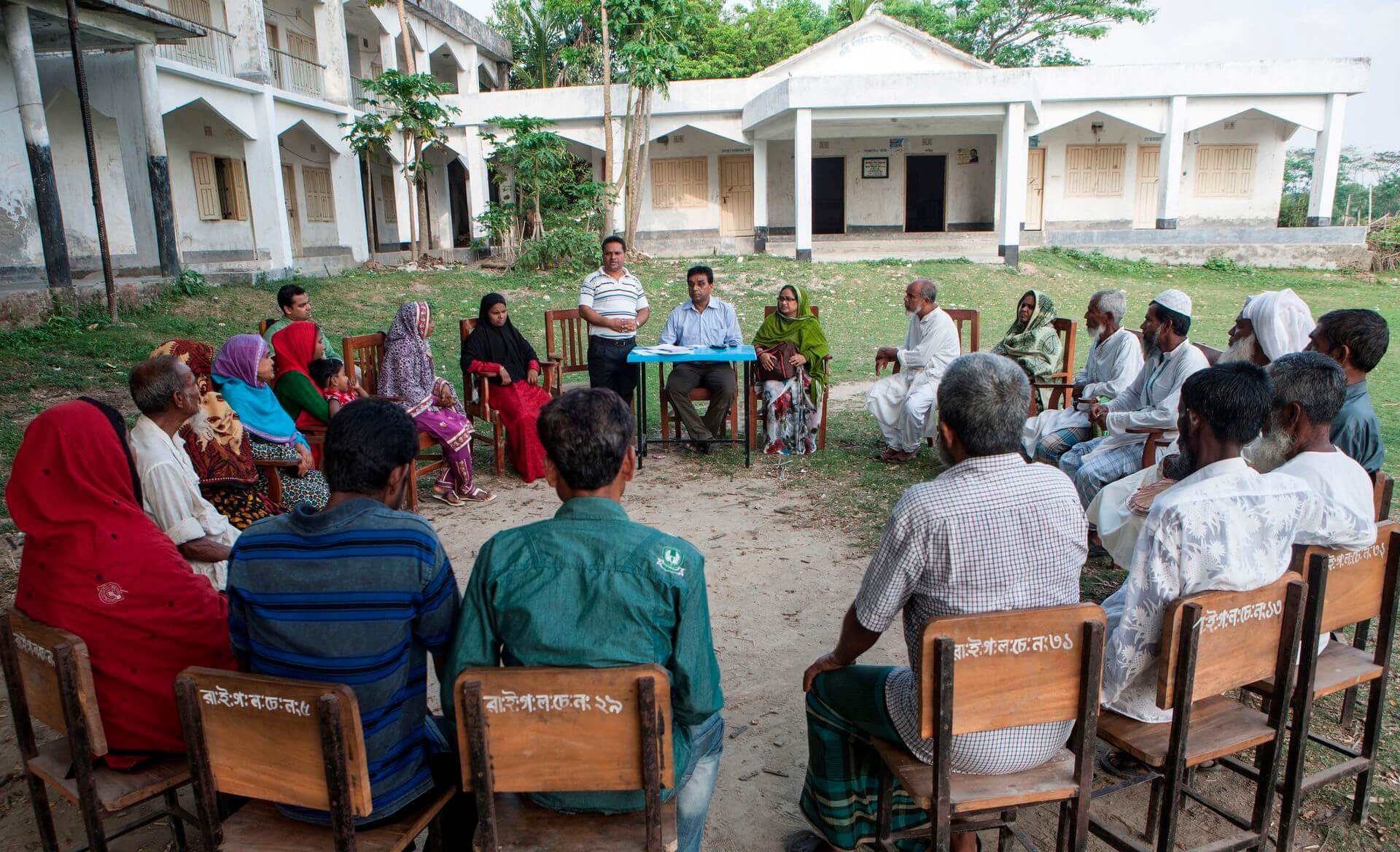NEWS
Prison Audit Malawi: Findings.
(13th March 2024)
Pathfinders for Peaceful, Just and inclusive Societies published our second blog on the Prison Audit Malawi find it here.
Internal evaluation of the Prison Audit Malawi by GJG
(26th February 2024)
Please find the full report available here.
Summary:
Relevance: moving the dial on progress towards reducing remand populations as a proportion of the prison population (SDG16.3.2) ….
-
Relevance: moving the dial on progress towards reducing remand populations as a proportion of the prison population (SDG16.3.2)
Coherence: maximizing local participation and catalysing better coordination.
Effectiveness: remand population reduced by 54% and accelerated cases where accused overstay custody time limits.
Efficiency: quick to complete, high in impact and low in cost.
Impact: released 180 remand prisoners, cataysed judicial action, improved prison conditions.
Sustainability: Internal Rate of Return at 217%. Data shared with independent prison inspectorate and organized to inform Bail and Sentencing Guidelines and government policy.
Early signs of extraordinarily high impact of Prison Audit Malawi.
(9th January 2024)
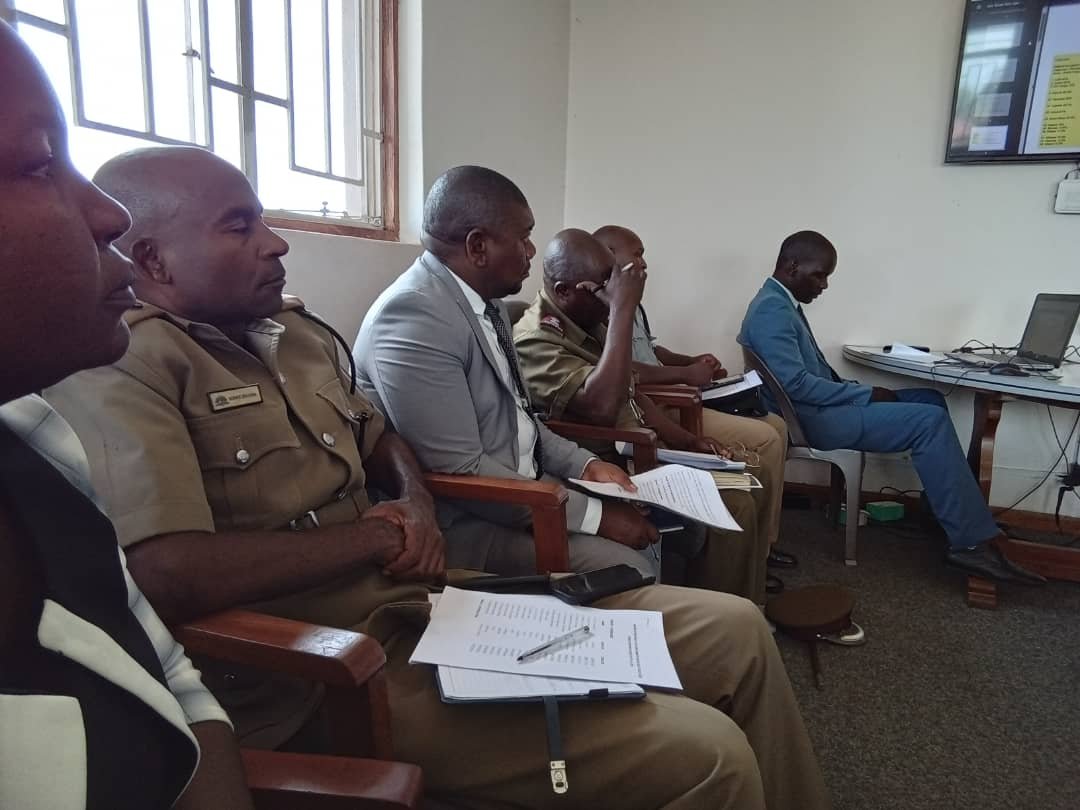
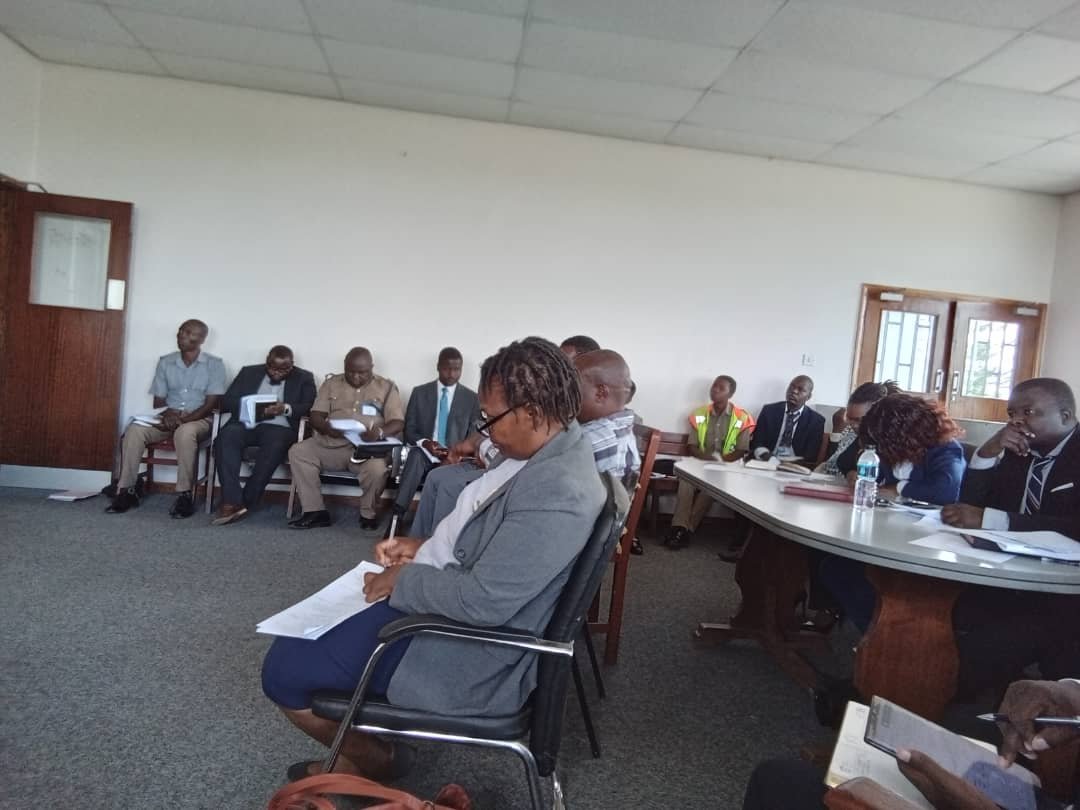
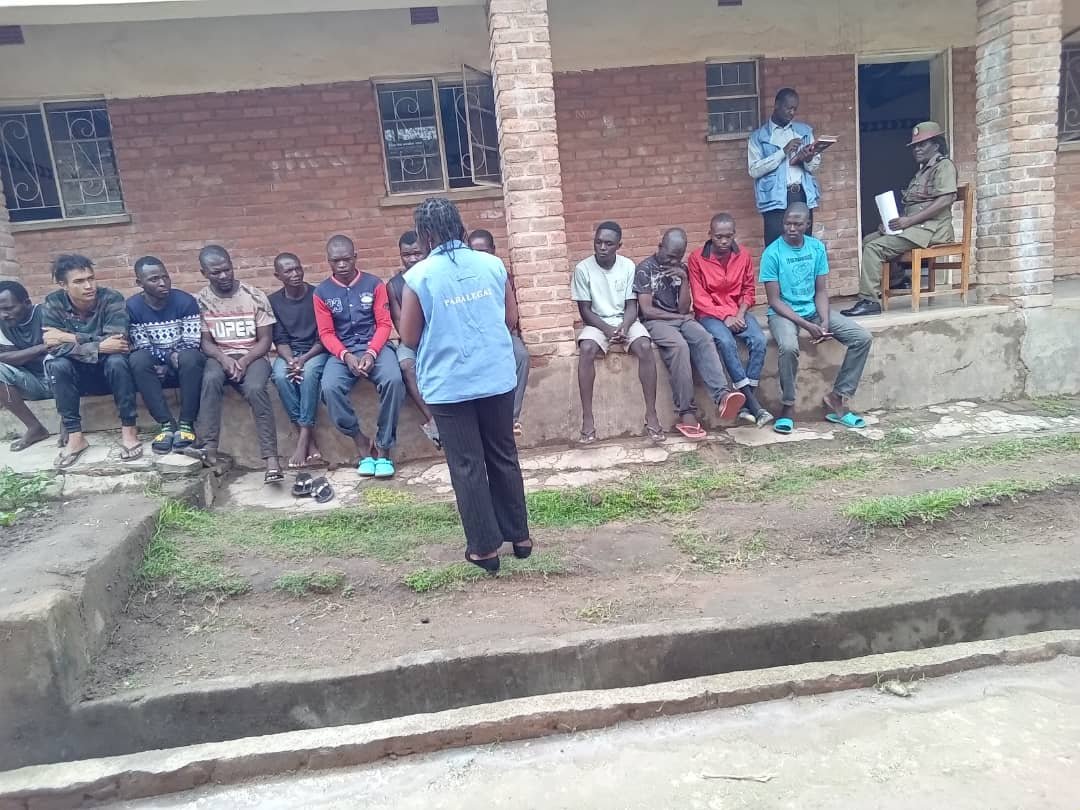
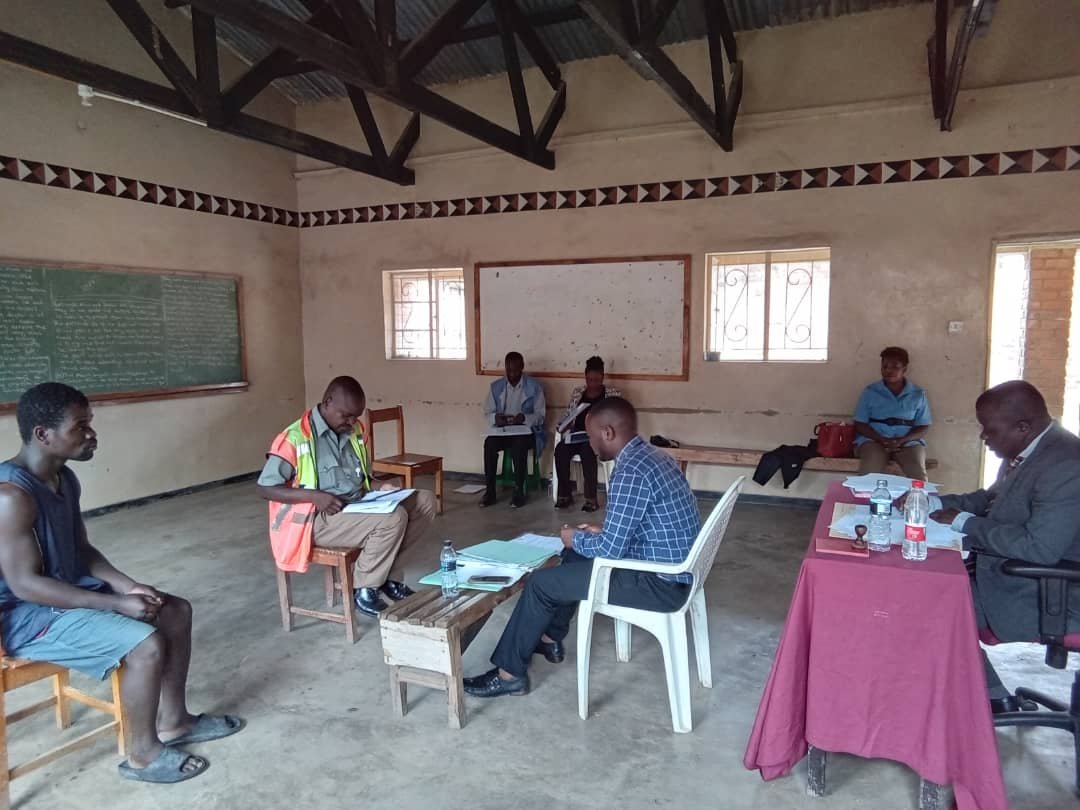
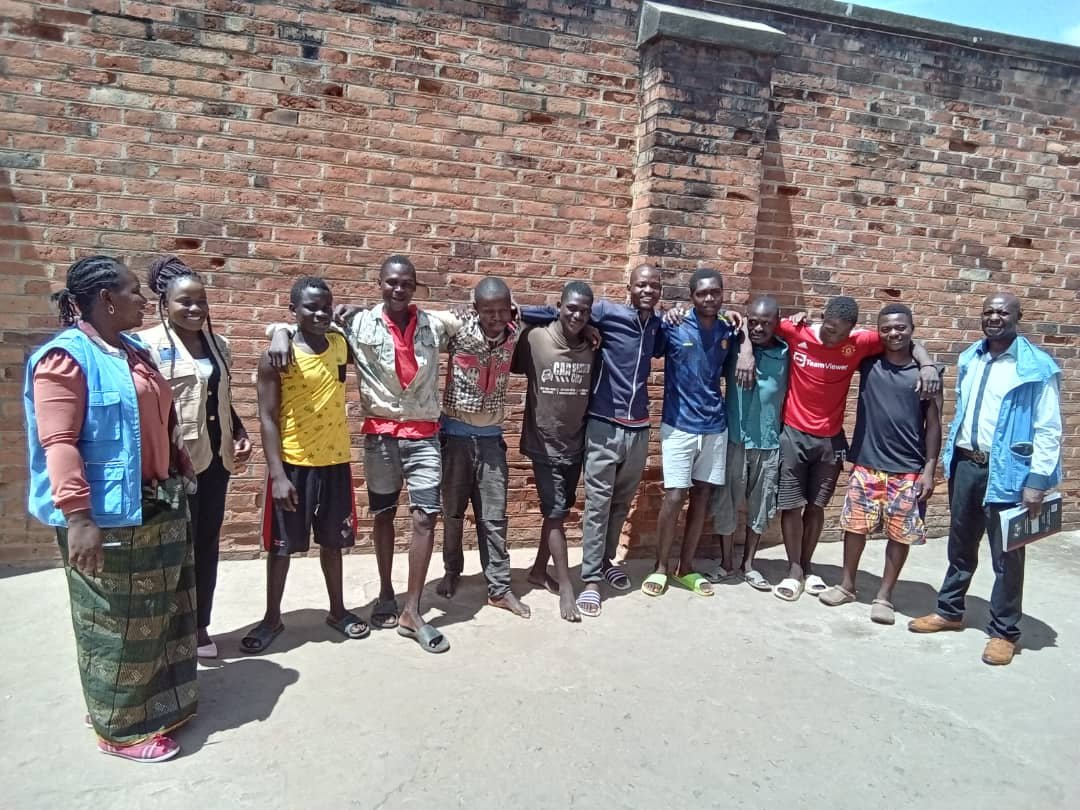
-
In November, 2023, the judiciary in Lilongwe and Mzuzu chaired meetings of senior police, state advocates, legal aid advocates, prison officers at which PASI and the GJG presented the findings of the Prison Audits of the prisons local to each court.
They each agreed to conduct Camp Courts in Maula and Mzuzu Prisons to review the lists of eligible prisoners submitted by the Prison Audit teams.
On a number of days in December up until Friday 22 nd December, magistrates and High Court judges sat to review the case lists.
In Mzuzu, the judiciary decided to review all 170 remand prisoners who were audited (beyond the 61% (n103) identified as eligible for release). The camp courts presided over by Magistrates reviewed the cases of 122 prisoners on remand and released 45. The camp courts presided over by High Court Judges reviewed the cases of 48 remand prisoners charged with homicide and released 26.In total: 71 prisoners were released out of the 103 found eligible by the Prison Audit or: 69%
Each Camp Court costs $120 to field (covering travel and lunch for court and staff). In Mzuzu there were six Camp Courts for Magistrates and three for High Court judges (averaging 20 cases per court hearing) at a cost in the range of $6 per case reviewed (170 cases) or $15 per release (71).Data for Maula Prison will follow shortly…
Prisons for the poor - Report.
(27th November 2023)
The Prison Audit is attracting national attention in Malawi. And at a time when new laws on prison, parole and adult diversion are being debated… Read more here
Prison Audit:
(2nd November 2023)
The Prison Audit Malawi was presented to the International Corrections and Prisons Association (ICPA) Annual Conference on Thursday 26 October.
A recap of proceedings can be reviewed here.
Pathfinders for Peaceful, Just and inclusive Societies published this blog on the same day.
Prison Audit Malawi:
A DATA DRIVEN APPROACH TO MEETING SDG 16.3.2
(6th October 2023)
Between 11-29 of September 2023, four paralegals from the Paralegal Advisory Service Institute (PASI) conducted a Prison Audit in Mzuzu Prison in the northern region of Malawi. They interviewed 850 prisoners (94% of the total prison population: 903)…
-
67% of prisoners awaiting trial are eligible for release on bail
66% of sentence prisoners eligible release for release in the main because their sentences have not been confirmed by the High Court
nearly all people arrested are held too long in police stations with no legal assistance
the main determinant for people being held in prison is poverty
incarceration directly affects the women and children dependant on the male breadwinner who has been incarcerated
very few people are represented at court
Mzuzu prison is more congested than official capacity suggests when applying ICRC’s minimum recommendations with cell occupancy over capacity averaging between 300-700%
The population is further boosted by 216 Ethiopian nationals (24% of the total prison population)
The Foreign National’s tale: I will be a man aged 30 or less. In Mzuzu I will have been held in the prison for over 3 months (some brothers have been held for 11-15 months). I will be sharing a cell with my Malawian brothers many of whom will be charged with or sentenced for serious criminal matters. My reason for being in prison is that I do not have a visa to be in Malawi, but I am passing through on my way south.
The lists of eligible remand and sentenced PASI is working currently with the Irish Rule of Law International (IRLI) lawyer team in Maula to organize ‘camp courts’ to review the remand lists identified in the Prison Audit.
‘What is a camp court’
A camp court is a mobile court sitting in the prison. It comprises a magistrate and his/her clerk and prosecutor. The court is supported by PASI paralegals. These are not courts of trial (because they are not held in public). They are courts to screen the awaiting trial caseload. PASI paralegals draw up a list of cases deserving attention which they forward to the prosecutor and magistrate for appropriate action when the court visits prison. The Camp Court is borrowed from a practice developed in Bihar state in India and has been functioning in Malawi prisons for over 20 years. The magistrate saves the prison the expense of transporting 50+ prisoners to his court by attending in person to review lists prepared by the prison service with PASI.
Prison Audit Malawi:
A DATA DRIVEN APPROACH TO MEETING SDG 16.3.2
(10th August 2023)
Six paralegals from the Paralegal Advisory Service Institute - working with prison officers - have just completed Prison Audits of Maula Prison and Kachere Women's Prison in Lilongwe, Malawi.
-
The Audit started in early June and was completed by end of July 2023 and interviewed just under 2500 prisoners (men, women and those under 21).
LIsts of remand and sentenced prisoners eligible for bail or early release have been forwarded to the judiciary.
The data are currently being analysed to inform sentenced practice and bail guidelines as well as justice policy makers.
The PASI team will train up paralegals and prison officers to conduct Prison Audits of Chichiri, Zumba and Mzuzu prisons in the southern, eastern and northern regions of Malawi before moving to new countries across the African continent ....
The Prison Audit is advised by an International Advisory Council chaired by Prof. Dirk van Zyl Smit (Nottingham University, UK and University of Cape Town, South Africa).
Members are: Mr Richard Kuuire (formerly head of prisons in Ghana and head of the UN Corrections Unit in South Sudan), Isabel Hight (formerly head of the Corrections Unit at UN DPKO), Mary Murphy (formerly detention adviser, ICRC) and Rifaat Makkawi (currently Director, Peoples' legal Aid Centre - PLACE - in the Sudan).
For information contact: Clifford Msiska at cliffmsiska@gmail.com; or Adam Stapleton at astapleton@governancejustice.org
The Justice Audit:
An actionable roadmap for delivering justice and strengthening the rule of law by unlocking the potential of a country’s own data.
Justice Snapshot Of Ethiopia
The Justice Snapshot Ethiopia 2021 shows the operation of the justice system at federal, chartered city and regional levels. Data (all justice institutions triangulated with survey data) were collected by teams from 12 Ethiopian law schools who navigated national elections, conflict and COVID to work with the GJG to deliver on time and within budget.
-
The data were validated by all institutions and the site is currently under a federal government embargo. The research was commissioned by UNDP with funding from SIDA.
Justice Snapshot Of Somaliland
Justice Snapshot Of South Central Somalia
Non-bailable Offences - A Violation Of The Right To Be Presumed Innocent
In many jurisdictions, in particular here in South Asia, there is a practice of considering the type of charges against an accused when determining whether or not to grant bail, instead of considering only the risks of the accused fleeing the jurisdiction, tampering with evidence, intimidating witnesses, or posing a threat to the public.
-
Last week, the Supreme Court of Bhutan ruled that this practice contravenes Article 7(16) of the Constitution of the Kingdom of Bhutan, which states, “A person charged with a penal offence has the right to be presumed innocent until proven guilty in accordance with the law”. This presumption of innocence is of course found in the laws of most jurisdictions, yet often, the unproven charges against accused persons are still grounds for denying bail. Perhaps this judgment from Bhutan can prompt more courts around the world to consider whether the concept of the non-bailable offence is indeed compatible with the presumption of innocence.
Swami Agnivesh In The Bhutan Dialoge
We had the honour, this evening, of dining with one of the greatest spiritual, philosophical and political thinkers and activists of our time. Swami Agnivesh's resume includes no less than 11 stints in prison on accusations of subversion – which is an irony given that his life’s work has been dedicated to upholding the Indian Constitution.
-
Sawami Ji was a pioneer of public interest litigation in India as he sought to use the law and the legal system to challenge the practice of bonded labour. More about his many achievements here: http://www.swamiagnivesh.com
In the Bhutan Dialogue this afternoon he encouraged us all to ‘doubt, debate and if necessary, to dissent.’ Regrettably, few of us are likely to have even a sliver of Swami Ji’s courage and fortitude.
The full talk will soon be available at http://bhutandialogues.bt/past-sessions/
The Justice Snapshot Steering Committee (Jssc) For South West State Is Formed In Baidoa
Under the chairmanship of the Minister of Justice for South West State, Honorable Md Hussein Hassan, and the guidance of the Honorable Chief Justice of the Supreme Court of South West State, Justice Ahmed Ali Mussa, a Justice Snapshot Steering Committee was established today.
-
The role of the Steering Committee will be to steer the Justice Snapshot in South West State, to support the data collection effort, and ensure that the process is conducted as agreed in accordance with the needs and priorities of the institutions involved. The Steering Committee is made up of representatives from the Police, Attorney General’s Office, Courts, Custodial Corps, the Bar, legal aid NGOs, and the Ministry of Justice.
Meeting With The Honourable Judge Dasho Lobzang Rinzin Yargay, Thimphu
The Bhutan National Legal Institute (BNLI) is the training and research arm of the Judiciary of the Kingdom of Bhutan. In addition to improving court administration and providing training, research and other support services, the BNLI provides mediation training to relevant stakeholders, in particular to Local Government officials, so as to allow them to mediate disputes in communities in accordance with traditional and Buddhist values.
-
In 2018 alone, a total of 4,492 disputes were mediated in 20 Dzongkhags, thus not only helping to restore harmony in society, but also avoiding costly and potentially far more acrimonious litigation before the courts.
Today I had great privilege of meeting the Honourable Judge Dasho Lobzang Rinzin Yargay, who is serving as the Director General of the BNLI. Under the leadership of Judge Dasho Yargay, and with the guidance of Her Royal Highness, Princess Sonam Dechan Wangchuck, the Royal Government of Bhutan is investing in mediation as a critical component of its strategy to advance Gross National Happiness.
Bangladesh is the first country to conduct a Justice Audit of its criminal justice system and to chart a deliberate pathway
Bangladesh is the first country to conduct a Justice Audit of its criminal justice system and to chart a deliberate pathway to meeting the Sustainable Development Goals (SDGs), particularly as they pertain to peace, justice and strong institutions.
-
The Justice Audit Bangladesh was commissioned by the Minister of Law, Justice and Parliamentary Affairs in 2016, implemented by German Development Cooperation (GIZ) and given the go-ahead to start work in January 2017.
Every justice institution and many civil society organisations have freely shared their data and fully participated in this Justice Audit. The Bangladesh Bureau of Statistics stepped in to survey the views of ordinary citizens and court users about their needs, experiences and preferences. A Justice Audit Forum (JAF) made up of all stakeholders coordinated the data collection and organisation with a multi-disciplinary team led by a former justice of the South African Constitutional Court.
This collaborative effort has resulted in a highly granulated set of data (down to the Union Parishad in each of the 64 districts) contained in the Baseline Data from which all the graphics are drawn and available to view at District and National levels. Taken together, these data provide:
a snapshot of how the criminal justice system was functioning on 31 December, 2016 across the country and in each of the 64 districts;
the pressures on–and challenges confronting–police, legal service providers, courts and prisons by district, (set out in district-view cartograms);
the resources available to government and the economies of justice reform.
While other Justice Audits have been completed in Malaysia and the Horn of Africa and one is ongoing in Chicago and Cook County (USA), Bangladesh leads the world in the wealth of data it has collected here. The result is a central, web-based, updateable, resource for government, justice service providers, civil society and external partners – which
illustrates the value of accurate data collection and so catalyses the start of a data collection system and culture throughout the justice and security sector;
provides a strong evidence-base to inform planning and budget allocation – for the national authorities and international development partners;
enables practitioners to see the interlocking needs and inter-dependent nature of the parts and stages of the system and to see themselves as part of a greater whole;
enables the public to understand the justice ‘story’ and, by improving the quality of statistics and information available to citizens empowers them with information on the progress towards the SDG and national targets and the contribution they can make; and
provides a key tool for policy-makers in leading the development of a long-term plan for the (re)establishment of a fair and efficient justice system.
The Justice Audit is not:
a one-off assessment: the data needs to be updated at regular intervals going forward to identify what is working (and what is not);
a finger-pointing exercise (blaming others for their shortfalls);
an instrument for ‘scoring’ any institution or ranking any district: it is not an index of performance against which the country may be measured against other countries; nor
a report containing a set of recommendations. Editorialising is avoided to allow only the data to speak.
So, what are the major findings of this first national Justice Audit? The national data is already available at https://bangladesh.justiceaudit.org
Press coverage of the launch was provided by the following pajor national news outlets:
https://www.thedailystar.net/politics/bangladesh-government-to-launch-justice-audit-system-to-reduce-case-backlog-1603114
http://www.theindependentbd.com/arcprint/details/159989/2018-07-30
http://www.unb.com.bd/bangladesh-news/Justice-audit-system-to-ease-pile-up-of-cases-Anisul%C2%A0/75090
Mary Robinson, The 7th President Of Ireland And Former Un High Commissioner For Human Rights Visited The Pasi Office
MARY ROBINSON, the 7th President of Ireland and former UN High Commissioner for Human Rights visited the PASI office in Lilongwe on 14 June 2018 to meet with PASI Director Clifford Msiska. She spent an hour and a half discussing how PASI paralegals assist those caught on the front-line of the criminal justice system and train/supervise village mediators under the Village Mediation Programme.
The Justice Audit @ Icegov New Delhi
Eric Cadora, Director, The Justice Mapping Center, New York (contact: ecadora@justicemapping.org) addressing delegates at the 10th International Conference on e-Government (ICEGOV) on Tuesday 7 March 2017 in New Delhi.
-
His presentation drew the attention of delegates away from government procurement procedures, the role of ICT in administrative modernisation programmes and the 'dark side' of digitisation and into a dynamic visualisation of the Justice Audit in Bangladesh and ongoing Justice Audit in Cook County, Illinois, USA (including Chicago) - led by Prof Tom Geraghty - tgeraghty@law.northwestern.edu - and quick Justice Snapshots in countries emerging from conflict (contact: Adam Stapleton - astapleton@governancejustice.org).
The Justice Audit Bangladesh is an initiative of the Bangladesh Minister of Law which is supported by the GJG, Justice Mapping and the Bluhm Legal Clinic at Northwestern University, Chicago (the Justice Audit Team, JAT) with funding from GIZ.













